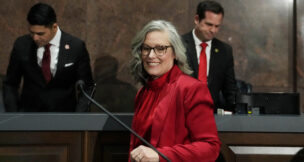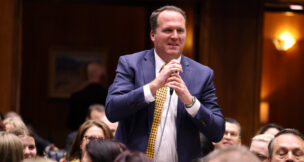Necessary or not, Supreme Court expands to 7 members
Gary Grado//January 3, 2017//
The seven-member Arizona Supreme Court stands with Gov. Doug Ducey. (Photo by Rachel Leingang, Arizona Capitol Times) Republican lawmakers defied a core GOP principle of limited...













































